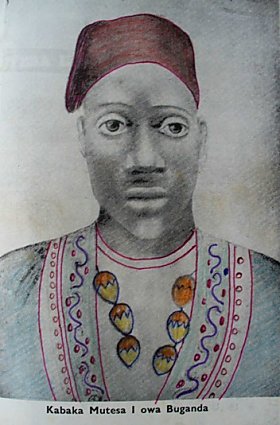On November 9th 1906, a letter was dispatched to the colonies by the government of Henry Campbell-Bannerman, the two-time Secretary for War, who had just become Prime Minister of Britain. Addressed from Downing Street, it would spark a fierce debate between colonial representatives in Uganda, Kenya and Zanzibar. It was about oil, specifically about the future ownership of oil discoveries. “ Sir” it began, “ I have the honor to inform you that in view of the increasing use of liquid fuels [oil] for naval purposes, the Admiralty attach importance to the reservation to the crown, in all cases in which grants or leases of crown land have been made, in the colonies, of the rights to the Crown to mineral oil”.
It was addressed to the Secretary of State For the Colonies, the Rt Honourable W.G.A Ormsby Gore, MP.
A string of terse correspondences, all marked confidential and in some cases ‘Top Secret’, began to be exchanged through trusted couriers. This debate would take several years, and as prospects for oil in Uganda started to look promising, especially heated.
At the heart of the debate was the situation that had been created in 1900 Buganda Agreement, sometimes referred to in colonial circles as the Uganda agreement. In seeking to reserve oil for the Crown, technocrats were worried that the Buganda Agreement, specifically section 17, had given private rights in entirety to landowners in Buganda, including rights to minerals under them. The agreement stated “ The rights to all minerals found on private estates shall be considered to belong only to the owners of those estates subject to a 10 percent ad volerem duty, which will be paid to the Uganda administration when the minerals are worked. On the land outside the estates, the mineral rights shall belong to the Uganda administration”.
The debate itself divided the political managers of the colonies in Britain from the technocrats, some of who were allied to commercial interests that sought to “work” these minerals. An opinion of the chief legal advisor to the Crown was sought, but his opinion caused even more consternation- and correspondences.
Did minerals include mineral oil? If it did not, then how can one reserve mineral oil on private estates created by the Buganda Agreement? How would mineral oil be separated from other minerals? The legal gymnastics that went on belied the political considerations for Britain.
Buganda was the centerpiece of the colonial protectorate and was anchored by the agreement, fictionally at least, between two sovereigns, the English Queen and the Kabaka. Most politicos were against introducing legislation, proposed by technocrats in Zanzibar and Kenya, and similar to the Petroleum (Production Act) 1934 of the United Kingdom.
In February, 1938, then Protectorate governor Sir Phillip Euen Mitchell summarized the situation thus: “ It may be said shortly, that private property in mining rights does not exist outside the Buganda province with the exception of ten square miles held by the native Anglican Church; but that in Buganda the rights to all minerals found on private mailo estates and on certain mission and freehold lands belongs to the owners of such estates and lands, subject to the payment of ten percent to the Protectorate Government”.
Sir Mitchell argued that, following the 1934 Act, it made sense that oil (petroleum and natural gas) rights be reserved for the Crown “ in the public interest” through additional legislation. “ The position in the case of Buganda land owners, however presents some difficulty,” he said.
He argued that the forces rallying to ring-fence oil had done so only after advances in the use of fossil fuels had opened new opportunities. “The concession of mineral rights in Buganda manifestly included gold and diamonds and though petroleum and natural gas were not singled out for particular mention, there is hardly any doubt that those who made the agreement intended to include everything of value that might be found under the land in the nature of minerals, without specific limitation”.
Mitchell advised against asking Buganda or even forcing Buganda to surrender those rights retrospectively. “ There is no doubt in my mind,” he said, “that the Kabaka and his government would protest against this course, and it is difficult to see any way of convincing them that there would be no substance to the assertion, which would infallibly be made, that the British government was thus arbitrarily confiscating the rights of private mailo owners which were conferred by the Uganda Agreement”.
A practical man, Mitchell also knew that the cost of antagonizing Buganda was higher than if the matter were left alone. Geological work had indicated that oil was likely in the Albertine valley, outside the Kabaka’s territory or any private estate owners. Indeed, land in Bunyoro was largely considered Crown land. Mitchell therefore advised that legislation be introduced for the rest of the territory, excluding Buganda. “ At a later date it might be possible to induce the native government to enact in the Lukiiko analogous legislation reserving to itself all rights to oil and natural gas on mailo land”.
Buganda’s special status within the colonial matrix aside, it is clear that the root of title to oil is always a subject of political negotiations. No similar debate on the rights to oil has since taken place in post-colonial Uganda, where oil was “discovered” in 2007. Two years earlier an omnibus bill, also known as the constitutional amendment bill, was presented in Parliament, expressly reserving oil for the new crown, the central government. The bill, like the removal of presidential term limits in the same year, was passed without much debate, either on the subject of public interest or on the inherent rights of other claimants to oil.
The political considerations weighed by the colonial governor in Entebbe, have been commuted to Bunyoro by the current seat of power, President Yoweri Museveni, whose official residence remains in Entebbe.
Bunyoro has been targeted not for separate legislation, however, but ostensibly sequestration. A new Ministry for Bunyoro Affairs, one of the most recent cabinet positions, has been created and filled by Mr. Ernest Kiiza.
Mr. Kiiza’s political career has been constructed on agitation for the rights of the Banyoro, in the age of not “hypothetical” oil but real oil discoveries. Mr. Kiiza also chairs, not unsurprisingly, the cabinet sub-committee on oil.
The question of ownership of oil or rights to oil remains open however. Public interest is the subject of new legislation recently proposed by the government in the form of the revised Public Finance Management Act. The architecture of the proposed PFMA is to merge budgeting and accountability functions and laws into one framework. Its main architect, Mr. Lawrence Kiiza, who led teams that considered drafts as far back as 2008, argues that the new law will rationalize management of all public sources of revenue including oil.
However parts of the new law, and its old draft, address a root of en[title]ment that is by default ‘native”. Special considerations are mooted for local administrations managed by the central government as well as the political power in those areas, superintended in the case of Bunyoro by his Highness The Omukama of Bunyoro’s government.
And while the government has proposed a formula for oil sharing, its rationale has not been put to debate, publicly or in manner of the quiet correspondences of yesteryear. Its been suggested that revenue sharing be determined as a share of the total production in a district or distributed by population size. But where have these criteria been debated?
Within the context of a new debate on the limits of decentralization as a government policy or the risks of centralization, a debate on political federation and another on “local content”, what does ownership of rights to oil or other minerals really mean? This debate is as fresh to law and politics as if the 1900 Buganda Agreement had just been signed.
A copy of this article was printed by the Daily Monitor on the 7th of January










